Ten years ago a Pan-European project entitled České sny (Czech Dreams) was born. It was based on the ideas of the International Music Festival of thirteen cities, bringing superb musical performances outside established cultural centres. The creators’ idea was to introduce concerts with unified dramaturgy in selected Czech towns and villages and their respective European twin towns. This year’s domestic part of Czech Dreams will be launched on 22 May, moving abroad on 4 July, when the symbolic flag of the festival will be handed over from Břeclav to Trnava. The manager of the festival Zdenka Kachlová discusses the development of Czech Dreams and its future.
Czech Dreams was held for the first time in 2004. Is it supposed to be an analogy of, or a response to, the event Rok české hudby (Year of Czech Music)?
There is a connection. Year of Czech Music also strives to promote superb projects and Czech artists in the Czech Republic and especially abroad. And since the Czech Dreams project is supposed to promote and support excellent Czech musicians and Czech music as such there is some synergy there. It is symptomatic that these two events have met again this year. I think Czech Dreams is one of the most important events of Year of Czech Music abroad. It was held for the fourth time this year.
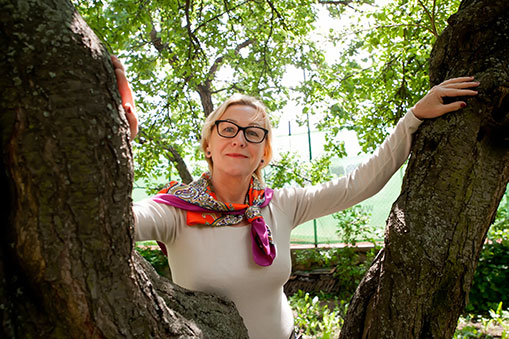 Who came with this idea?
Who came with this idea?
I have been involved with Czech Dreams since 2011. However, the idea itself came from Aleš Březina and David Dittrich in 2004. The idea was to schedule a showcase of musical performances by Czech artists on the occasion of EU accession. This project was based on the concept of the festival Concentus Moraviae which itself is a showcase of this kind in the South Moravian Region and the Vysočina Region with aim to expand this project in Europe. The Czech Dreams event emphasises regional cooperation, which is why it was supposed to cover European regions and avoid major cultural centres. That, I think, was the primary idea on which the first annual event was based.
Looking at this year’s programme, I see major contributions by Norwegian and Spanish composers. How do they represent “Czech Dreams”?
They represent a deeper level of cooperation. At the beginning of the fourth annual event there was the idea to introduce national music throughout Europe. Northern Europe, Central Europe and Southern Europe were selected. Northern Europe was eventually represented by Norway where the national music is a strong defining element. Plus we had a strong partner there, a festival in Bergen. Central Europe was naturally represented by the Czech Republic. Spain is also among the countries where the national music enjoys a prominent presence. We also had an excellent partner in Spain – the festival in Granada. These festivals are members of the European Festival Association, just like we are, so we could have put things together nicely. Unfortunately, the directors of both of these festivals resigned and the whole cooperation-based structure started to fall apart. On the other hand, the dramaturgy (national music and identity in the changing society) remained unaffected.
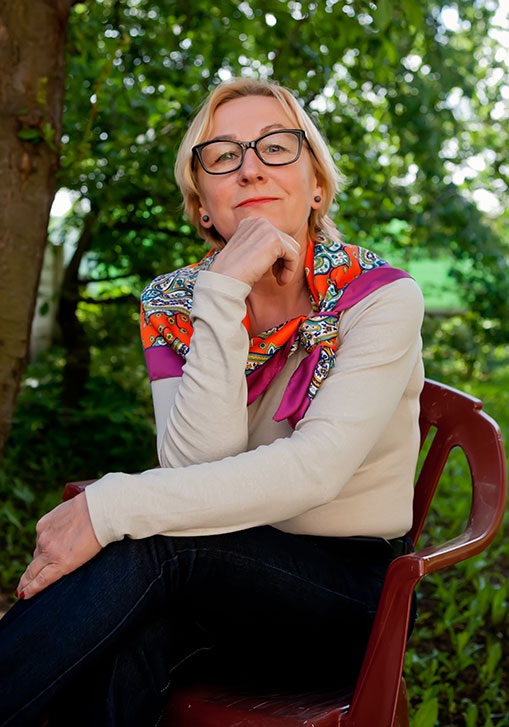 Magdalena Kožená and Simon Rattle are the patrons of this year’s event. What does this partnership mean to you?
Magdalena Kožená and Simon Rattle are the patrons of this year’s event. What does this partnership mean to you?
It is a big deal and an honour for us to have these excellent artists as partners of the event. Magdalena Kožená has been the patroness of the project since 2004. Back then her fellow patron was Václav Havel. Having Czech Dreams associated with these personalities meant big support and promotion. This year we have managed to get Sir Simon Rattle on board, who is a Czech music aficionado. Not only is he a patron of Czech Dreams this year, he is the patron of Year of Czech Music as well. The association with, and the favour of these personalities is a big plus for Czech Dreams. It proves the quality and significance of the entire project in the eyes of our partners, artists and listeners.
Why don’t the patrons have their own concerts?
Originally, both were supposed to have their own concerts. We had prepared a beautiful concert with Magdalena Kožená in cooperation with a chamber orchestra of predominantly Czech musicians and Sir Simon Rattle as a pianist. However due to a fortunate event this concert had to be cancelled, as Magdalena Kožená is expecting the birth of her third child in June.
Now, that is a good reason for cancellation. What is the number one moment for you from the events held so far?
This is my second year and the human element is most important for me. I am used to working with large ensembles and famous artists on large world stages in musical centres at prestigious festivals. And then Czech Dreams came, heading to regions and small towns and villages. The events are organised by municipalities or local institutions, as well as renowned professional international festivals which are concerned with organising concerts in regions. We want to bring superb artists and their music to these regions and support and develop regional cooperation through music. In 2011 I attended all concerts, all fifty of them. I visited the most unusual of places. For example the concert of Zuzana Lapčíková and her jazz quintet in Germany was held in a potato storage shed. It was a place where bags of potatoes were brought and stored in the afternoon. In the evening they made some room for the performers and a local audience. Memorable concerts were also held in Klaipeda, Lithuania where Clarinet Factory had an amazing crowd, or in Izegem, Belgium where Duo Ardašev had their concert. It was sold out and people are looking forward to more and more concerts, as the town has been a partner of the project since 2004. An event called Czech Weekend in Santiago de Compostela, Spain was extremely encouraging and beneficial in terms of mutual relations. During this three-day programme several ensembles performed; we also brought an exhibition and Czech movies. I should also mention the final concert in Wroclaw which took months to prepare. Its programme included Melody Makers, the Polish audience was amazing and the atmosphere was breathtaking. For me, the project is not just about excellent performers and great music. It also has an undisputable human and social element because the Czech Dreams project brings a lot of people together. The concerts are often held in twin towns of Czech towns. Representatives of the municipalities can get together and boost cooperation. These people get together, they talk and become closer.
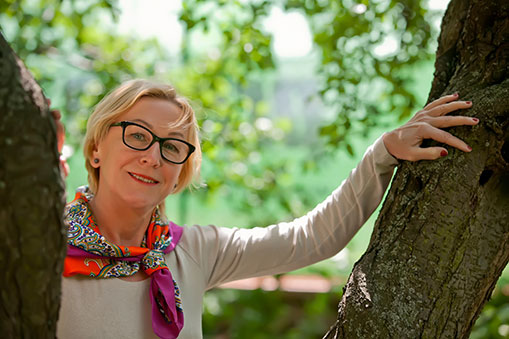 Being able to bring superb ensembles to small stages, outside famous theatres may indeed sound like a dream. But what is the “Czech” attribute of this project? Is it perhaps the fact that it is “small and modest, but ours”?
Being able to bring superb ensembles to small stages, outside famous theatres may indeed sound like a dream. But what is the “Czech” attribute of this project? Is it perhaps the fact that it is “small and modest, but ours”?
I have never thought about it this way. Dreams are not negative. Of course, artists have dreams of their own and the cooperation of artists and people who can show them the world is undoubtedly a positive thing. It is not a matter of Czechs and their modesty – we want to promote superb artists. Many foreign organisers of these events often tell me “Czechs are practically unheard of”. Of course, we have a handful of well-known big names but on the other hand there are many great young performers who should be promoted so that they can move forward in their careers. The Czech Dreams event plays an irreplaceable role here because many artists performed in a certain country for the first time thanks to this event. Their concert may be the first impulse for further cooperation with local organisers of these events.
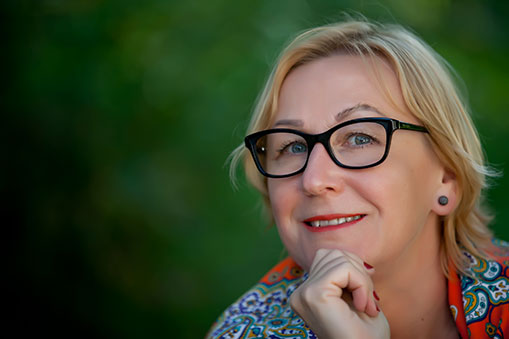 What is your Czech musical dream? Any “performer of your dreams”, perhaps…
What is your Czech musical dream? Any “performer of your dreams”, perhaps…
My dreams are practical and pragmatic. I am glad that the domestic part of the Czech Dreams of the Concentus Moraviae festival will include, for the first time this year, Janáčkův máj in Ostrava. I am glad that the project will have its resident soloist for the first time this year: Josef Špaček from the Czech Philharmonic. My dream is to have enough strength to pull this whole thing off. It is a lot of work for a few people. My dream is also to retain our partners and sign new ones and to satisfy as many people as possible with our programme.
What should a festival venue dream after a Czech Dreams concert? Should it realise that Bohemia is not just about beer?
Definitely. They should see that our export articles are not limited to beer or cars. They have to realise that we have superb artists and composers and that our music (both old and contemporary) sounds really good.




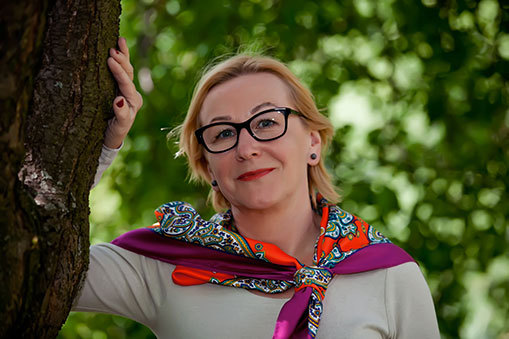



























No comment added yet..